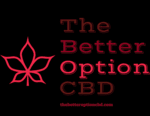Understanding Nutrient Needs on a Vegan Diet
Before diving into specific supplements, it’s important to understand the nutrients that may be lacking in a vegan diet. Some key nutrients to pay attention to include:
- Vitamin B12
- Vitamin D
- Omega-3 fatty acids
- Iron
- Calcium
- Zinc
- Iodine
While these nutrients can be obtained from plant-based sources, it may require careful planning and attention to ensure you’re meeting your daily requirements.
Vitamin B12
Vitamin B12 is essential for nerve function, DNA synthesis, and the production of red blood cells. It is primarily found in animal products, so vegans are at risk of deficiency. Taking a vitamin B12 supplement is recommended for vegans to ensure adequate intake.
Why is vitamin B12 important for vegans?
Vitamin B12 is primarily found in animal products, so vegans may not get enough of this nutrient from their diet alone. A deficiency in vitamin B12 can lead to fatigue, weakness, nerve damage, and other health problems.
Vitamin D
Vitamin D is important for bone health, immune function, and mood regulation. While some vitamin D can be obtained from sunlight exposure, it may be challenging for vegans to get enough from food sources alone. Taking a vitamin D supplement, especially during the winter months or for those with limited sun exposure, is recommended.
How can vegans get enough vitamin D?
While sunlight exposure is the primary source of vitamin D for most people, vegans can also obtain vitamin D from fortified foods such as plant-based milk, orange juice, and cereals. However, supplementation may be necessary, especially for those with limited sun exposure or living in northern latitudes.
Omega-3 Fatty Acids
Omega-3 fatty acids are important for heart health, brain function, and inflammation control. While fish is a common source of omega-3s, vegans can obtain these essential fatty acids from sources such as flaxseeds, chia seeds, hemp seeds, and walnuts. However, supplementation with an algae-based omega-3 supplement may be beneficial to ensure an adequate intake of EPA and DHA, which are less abundant in plant-based sources.
Are plant-based sources of omega-3s sufficient for vegans?
While plant-based sources of omega-3s can provide alpha-linolenic acid (ALA), which can be converted into EPA and DHA in the body, the conversion rate is relatively low. Therefore, supplementation with an algae-based omega-3 supplement may be recommended for vegans to ensure optimal intake of these essential fatty acids.
Iron
Iron is essential for oxygen transport in the blood and energy production. While iron is abundant in many plant-based foods, the type of iron found in plants (non-heme iron) is not as readily absorbed by the body as heme iron from animal sources. To enhance iron absorption, it’s recommended to consume iron-rich foods alongside vitamin C-rich foods and consider taking an iron supplement if needed.
How can vegans enhance iron absorption?
Vegans can enhance iron absorption by consuming iron-rich plant foods such as lentils, beans, tofu, spinach, and fortified cereals alongside vitamin C-rich foods like citrus fruits, bell peppers, and tomatoes. Cooking in cast-iron cookware can also increase iron content in food.
Calcium
Calcium is essential for bone health, muscle function, and nerve transmission. While dairy products are a common source of calcium, vegans can obtain this mineral from sources such as fortified plant-based milk, tofu, leafy greens, almonds, and sesame seeds. However, supplementation may be necessary for those who do not consume enough calcium-rich foods.
How can vegans meet their calcium needs?
Vegans can meet their calcium needs by consuming calcium-rich plant foods such as fortified plant-based milk, tofu, leafy greens, almonds, and sesame seeds. Additionally, calcium supplements may be beneficial for individuals who do not consume enough of these foods to meet their daily requirements.
Zinc
Zinc is important for immune function, wound healing, and DNA synthesis. While zinc is found in a variety of plant-based foods such as legumes, nuts, seeds, and whole grains, the bioavailability of zinc from plant sources may be lower than from animal sources. Therefore, supplementation with a zinc supplement may be beneficial for vegans, especially those at risk of deficiency.
Are plant-based sources of zinc sufficient for vegans?
While plant-based sources of zinc can contribute to overall intake, the bioavailability of zinc from plant foods is lower than from animal sources. Therefore, supplementation with a zinc supplement may be recommended for vegans, especially those with limited intake of zinc-rich plant foods.
Iodine
Iodine is important for thyroid function and the production of thyroid hormones. While iodine is abundant in seafood, it may be lacking in a vegan diet, especially if iodized salt is not regularly used. Therefore, supplementation with an iodine supplement or consumption of iodine-rich seaweed may be necessary for vegans to ensure adequate intake.
How can vegans ensure adequate iodine intake?
Vegans can ensure adequate iodine intake by using iodized salt in cooking and seasoning, consuming iodine-rich seaweed such as nori, kelp, or dulse, and considering supplementation if needed. However, it’s essential not to exceed the recommended daily intake of iodine, as excessive intake can have adverse health effects.
FAQs
Can’t I get all the nutrients I need from a vegan diet alone?
While a well-planned vegan diet can provide most of the nutrients your body needs, certain vitamins and minerals may be lacking or less readily absorbed from plant-based sources. Therefore, supplementation may be necessary to ensure optimal nutrient intake, especially for key nutrients like vitamin B12, vitamin D, and omega-3 fatty acids.
Is it safe to take supplements while following a vegan diet?
Yes, it is safe to take supplements while following a vegan diet, as long as the supplements are free from animal-derived ingredients. Look for supplements labeled as “vegan” or “plant-based” to ensure they meet your dietary preferences.
Can I get vitamin B12 from fortified foods instead of taking a supplement?
While some plant-based foods are fortified with vitamin B12, such as fortified plant-based milk and nutritional yeast, it may be challenging to obtain enough vitamin B12 from fortified foods alone. Therefore, supplementation with a vitamin B12 supplement is often recommended for vegans to ensure adequate intake.
Are there any risks associated with taking supplements?
While supplements can be beneficial for filling nutrient gaps in a vegan diet, there may be risks associated with excessive intake of certain vitamins and minerals. It’s essential to follow the recommended dosage guidelines provided on the supplement packaging and consult with a healthcare professional if you have any concerns.
How do I know if I need to take supplements on a vegan diet?
If you’re following a well-balanced vegan diet that includes a variety of nutrient-rich foods, you may not need to take supplements. However, if you’re concerned about meeting your nutritional needs or have specific dietary restrictions, it’s a good idea to consult with a healthcare professional or registered dietitian who can assess your diet and recommend appropriate supplements if needed.
Can’t I just rely on fortified foods to meet my nutritional needs?
While fortified foods can contribute to overall nutrient intake, they may not provide all of the essential vitamins and minerals your body needs. Additionally, the bioavailability of nutrients from fortified foods may vary, so supplementation may be necessary to ensure optimal nutrient intake, especially for key nutrients like vitamin B12, vitamin D, and omega-3 fatty acids.
How can I ensure I’m taking supplements responsibly?
To ensure you’re taking supplements responsibly, it’s essential to follow the recommended dosage guidelines provided on the supplement packaging, choose supplements from reputable brands, and consult with a healthcare professional if you have any concerns or specific health conditions. Additionally, be sure to store supplements properly and discontinue use if you experience any adverse reactions.
- 7 Things to Know About the 500-Calorie Diet - May 1, 2024
- Sucrose vs Glucose vs Fructose: What’s the Difference? - May 1, 2024
- Benefits of Cucumber Water: 7 Reasons to Start Sipping - May 1, 2024

